Announcer:
The following program is a PBS Wisconsin original production.
Frederica Freyberg:
I’m Frederica Freyberg. Tonight on “Here & Now,” I talk one-on-one with Governor Tony Evers about COVID-19 and this week’s spring election. Plus reaction from the Republican side. That’s next on “Here & Now” for Friday, April 10.
Announcer:
Funding for “Here & Now” is provided by the Focus Fund for Journalism and Friends of PBS Wisconsin.
Frederica Freyberg:
You’ll notice we are coming to you from outside the PBS Wisconsin studios. Engineers and support staff are remotely bringing you our picture. Our interview guests will appear via video conference. And our reporters are ingeniously producing stories out of their homes. Our web news editors are turning articles for online reading. With that understanding of how “Here & Now” is working right now, we begin with a report on Tuesday’s election from which we will not see results until Monday due to an extension for clerks to count absentee ballots. Senior Political Reporter Zac Schultz reports on the potential fallout from our spring election.
Female voter:
This makes no sense today.
Voter:
No.
Zac Schultz:
Wisconsin’s 2020 pandemic election will be remembered for many things.
Male Voter:
We only have five polling places in the city and I’ve been out here for almost two hours.
Zac Schultz:
There were long lines in Milwaukee full of voters wearing masks.
Robin Vos:
You are incredibly safe to go out.
Zac Schultz:
Assembly Speaker Robin Vos worked as a poll worker in Burlington.
Man:
I signed up for an absentee ballot for my wife and I two weeks ago and never got them.
Zac Schultz:
But most of all, voters across the state were angry at a situation that required them to risk contracting the COVID-19 virus in order to vote.
Richard Saks:
Well, in our view, yesterday was truly a tragedy. Hundreds of thousands of voters were basically forced to make a very cruel decision.
Zac Schultz:
Richard Saks is one of the lawyers who filed suit in federal court trying to delay the election for all the reasons we saw. In that case, U.S. Judge William Conley ruled he didn’t have the authority to stop the election, but he did say he could revisit the results.
Richard Saks:
He was open and amenable to reviewing post-election, whether or not what we foretold actually happened.
Zac Schultz:
Saks says he has evidence of hundreds and likely thousands of cases of voter disenfranchisement where because of the pandemic, voters were not able to cast a ballot, either due to long wait times at a reduced number of polling locations or an inability to get an absentee ballot.
Richard Saks:
The issue we would present to him would be very serious evidence about voters who were denied the right to vote and how the denial of their right to vote changed the course of this election.
Barry Burden:
My guess is there will be some litigation. This is how Wisconsin works now. When a group is unhappy, they go to court to seek a remedy.
Zac Schultz:
Barry Burden is a political scientist professor at UW-Madison. He says voter turnout numbers in spring elections can be very different year to year depending what is on the ballot. So it can be difficult to prove voters who stayed home did so due to the pandemic.
Barry Burden:
If you’re suing under, say, the Voting Rights Act, then disparities between racial and ethnic groups are the important factor. But it’s hard to do in Wisconsin. The voter file that the state keeps, the database of all the voters, doesn’t include the race of the voter.
Zac Schultz:
Saks says they’re studying turnout numbers in African-American wards in Milwaukee because under the Voting Rights Act, minority voters have special protections.
Richard Saks:
And if in fact minority voters as a group were supporting a particular candidate that they wanted to see elected and that candidate wasn’t elected because the Republican legislature insisted upon those voters coming out to vote in the midst of a pandemic, that would be in my mind a very serious violation of all those voters’ right to vote.
Zac Schultz:
The question then is what could a judge do to fix the problem after the election.
Richard Saks:
In terms of what remedy we’d be looking for, I’m not certain.
Barry Burden:
I don’t know what the remedy would be at this point. It seems unlikely that a judge would order that an election is rerun.
Zac Schultz:
Professor Burden says one answer is to look to the next election.
Barry Burden:
There may be some remedies that get put in place for future elections. Maybe mandates that are placed on election authorities for the August primary or the November election.
Zac Schultz:
Saks agrees this won’t be limited to this spring.
Richard Saks:
We have to take a very serious look that this could be somewhat of a dress rehearsal for the type of obstacles that voters may face as we go forward to the November election.
Zac Schultz:
Reporting from Madison, I’m Zac Schultz for “Here & Now.”
Frederica Freyberg:
One day before Tuesday’s election, Governor Tony Evers issued his executive order suspending in-person voting, but his move failed in the courts. Why did he wait? What are his thoughts as Wisconsin awaits election returns, results now scheduled for release on Monday? We ask him these questions and more as COVID-19 cases continue to mount. The governor has agreed to join us each Friday with the latest updates on what’s happening and he joins us now from the capitol. Governor, thank you very much for joining us. We really appreciate it.
Tony Evers:
Thank you, Frederica.
Frederica Freyberg:
What do you propose for November elections given concerns over polling places and ballots in the spring election?
Tony Evers:
Well, certainly I think with a million people voting by mail, over a million people voting by mail, that’s something we have to consider. Now, do I think the legislators are going to be in a position of doing a mail-in only? I think that’s unlikely. But the fact of the matter is we’ve had over a million people voting in this primary election, which is a low turnout primary, and I’m going to keep pushing people to take that into November. That it is easier and more effective and it can be done. And certainly we have to be, you know, better organized ahead of time to make that happen. But I think people have voted with their feet and they’ve indicated that they want — they personally want to do this.
Frederica Freyberg:
What about for the May date in the 7th Congressional? Will you call to delay that?
Tony Evers:
Well, we’re still — that’s under consideration. We’re going to follow the science. I know people are tired of me saying that. But if indeed we feel that it will endanger people health-wise, then we will look at a change. But we’re not at that point now.
Frederica Freyberg:
When you saw images of those long lines in Milwaukee and elsewhere, what did you think?
Tony Evers:
I think — I thought that this is a reason I ordered this election to be pushed back and why I worked hard over several weeks to get to a different place with legislative leaders. And, you know, it didn’t have to happen. It did happen. And so it was forcing people to decide whether to vote or whether to be unsafe. And it was just — made people have a — forced them into making choices like that. I didn’t think that was fair, but the court made the ruling and that was that.
Frederica Freyberg:
Why did you wait so long to try to order a delay in in-person voting?
Tony Evers:
Well, first of all, if I had done that order two weeks earlier, it would have been the same result. The Supreme Court made it very clear. But I felt that I had to give the legislature — they have a role in this, that they had the opportunity to look at changing it in some way, and we obviously got no place with that. And so at the end of the day, I knew I had to do that order.
Frederica Freyberg:
What is your response to absentee ballot problems that may have prevented people from either getting one or a clerk from receiving a completed ballot?
Tony Evers:
That’s just it. Before I even think about what I should be saying about that, I want to know exactly what happened. And we are going to find out. But, you know, I’m not even — I don’t even frankly know whether it’s ballots that have never been delivered to voters or voters sending ballots to their municipality. That is an unknown yet. And so we have to sort through that. But certainly that isn’t the way we want it to work no matter which way it’s done.
Frederica Freyberg:
What do you say to people who may not have been able to vote because of all these issues?
Tony Evers:
Well, it is complex times and it will be litigated, I am sure. And certainly the federal court activity contributed to that mightily in that we had different times and dates and expectations at one time, and then at the last minute the U.S. Supreme Court made their decision. And so there’s going to have to be some reckoning what’s happened there, too. But clearly I’m sure there are people who feel disenfranchised by this in very real ways and I anticipate that we’ll have court decisions on this for some time.
Frederica Freyberg:
I understand that the Department of Health Services will step up contact tracing to “better track Wisconsin residents who may have been exposed to COVID-19 during Tuesday’s election.” What will health officials do with that information?
Tony Evers:
Yeah. The contact tracing is really important. And it’s important, an important tool for public health people anyway. But we’ll be — I think there will be 100 people on the ground in the Milwaukee area and other areas of the state, I believe, to ask questions of — ask questions of people that have — within the next 14 days or so, you know, where were you when this happened. Who were you with, that sort of thing. And we’ll be able to zero it into where that happened and was it a result of voting or not. Or at least certainly a good estimate, guesstimate. But the contract tracing is really important, not just for this election but for other things going forward. We have to have that stuff in place because once we get to a point where we’re back to normal and things are operating, we still have to be protective. Public health is going to look a lot different in the future than it does right now.
Frederica Freyberg:
Where are we right now with this outbreak? Have the safer at home orders yet flattened the curve?
Tony Evers:
Not yet, but we believe it would have been a much worse situation if we hadn’t had the safer at home order. I think it’s been really important and at the end of the day, it’s going to be very effective. But we are not yet at the point where that curve is flattened. And so we will continue to monitor this on a regular basis and think about what we should be doing going forward. But it is the right thing. People of Wisconsin, frankly, have responded quite well. I know restrictions aren’t everybody’s top of their list, but we need to do this.
Frederica Freyberg:
Do you expect to extend your stay at home order past April 24? Some at this point seem to be calling for it to be lifted even ahead of that.
Tony Evers:
Yeah. That’s — I think we need to really think hard about those kind of recommendations. The last thing, whether you’re a business owner or somebody that’s unemployed, there’s lots of people that are suffering by this. And I’d suggest the entire state is, in respect. But the last thing we want is to go through all this work and do something too soon and suddenly have a recurrence. And then you and I will be sitting here a year from now talking about the same thing. I’m glad to come back and talk about other things in a year from now. But the last thing I want to be is talking about this a year from now. So we have to be very cautious and very careful.
Frederica Freyberg:
What can be done about how COVID-19 is disproportionately affecting the African-American population?
Tony Evers:
Yeah. It’s a crisis within a crisis. The contact tracing we do around the convention — election, excuse me, is really important for all people, and especially when we understand that people of color, especially our African-American friends and neighbors, are being disproportionately impacted by this. And so that contact tracing is really important there, too, so that we understand what we need to do going forward to make sure that doesn’t happen again.
Frederica Freyberg:
Late this week, you announced that State Fair Park will be turned into an alternative care facility. Why is that needed at this time?
Tony Evers:
Well, we anticipate a surge in people that have the virus and are needing hospital beds, and so this is to get us to the point where we have — we will always have more hospital beds than we have people needing those beds. If we ever get that flipped, it will be New York and we will be in a bad place. So we’re working with Army Corps of Engineers and of course our National Guard partners and FEMA to create this at the Wisconsin State Fair Park. I think it’s important that we keep ahead of that curve.
Frederica Freyberg:
What kind of capacity will that facility have?
Tony Evers:
Well, I think that’s still being decided, but we are in the process of using the exposition hall, which is a large facility there. So I think it’s going to give us lots of options, but the exact number of beds yet are not — to my knowledge, is not yet determined.
Frederica Freyberg:
You’ve also just closed 40 state parks. Why did you take that action?
Tony Evers:
That hurt. That hurt mightily. As one that — a couple times has utilized the state parks in this traumatic time. It just became too much of an issue of people — first of all, there’s bad actors, vandalism, things like that. And then there’s a lot of people that weren’t appropriately distancing themselves, and it became too much of a burden to keep it open and, unfortunately, we had to close down most of the system.
Frederica Freyberg:
Has your Department of Workforce Development been able to adequately respond to the hundreds of thousands of unemployment claims?
Tony Evers:
Well, we’re sure working hard at it. We’ve added more people. We’ve added more technology. We are hoping that in this budget deliberations with the legislature, we can get some resources for more people. We moved people around in order to do this. But people also have to realize — and this is no excuse, but once people are done taking that input from somebody on the phone or online, they actually have to process all that information into the system so that they get their checks. So it’s a 24-hour-a-day event. We just need more people to make it happen in the best way possible. I think we’re doing well. Well over 90% of the people are completing this online so we’re continuing to work with on that. But are we satisfied with our results yet? No. But I think we will be in a better place.
Frederica Freyberg:
When can people expect those enhanced benefits that are part of the federal stimulus package?
Tony Evers:
Well, we’re still receiving information from the federal government on that. I heard it was going to be very, very soon. Treasury Department which frankly isn’t a department that has been involved with providing guidance materials for situations like this, they won’t be getting their final guidance out until the end of next week. So hopefully that money that will be going — the additional money that will be going to those on unemployment insurance will be there very soon.
Frederica Freyberg:
Meanwhile, as you well know, legislative leaders are working on their own COVID-19 response package and are set to take that up next week. How well does that package dovetail with your own proposals?
Tony Evers:
Well, we’re waiting to see it Frederica. We’ve had conversations with the Republican leadership and I know the Democrats and the legislature have. But until I get a chance to see it, it’s hard to react to. I know at one point in time — and I’m still very concerned about it, and to me it’s a poison pill to have — give so much authority — one of their proposals was to give so much authority to the Joint Finance Committee. And the essence of that is a small group of folks would be able to gut the budget and make cuts on their own volition, which completely is not acceptable to me. So I’m hopeful that that piece is not in the legislation because I would hate to veto some very important things because of that.
Frederica Freyberg:
What is most important to you to be in any kind of package like that?
Tony Evers:
Well, certainly we have — the one week of — that the federal government — and unemployment insurance is an example. It was really important that the federal government said we won’t delay it, won’t be that one-week waiting period. We have to have the state government say the same and only our legislature can make that happen through a bill. And this has to be a part of it. That’s a huge thing. That’s immediately impacting all sorts of people in the state of Wisconsin. There’s all sorts of other things we need as relates to making sure that our local public health workers and county health agencies are in a good place so that they can continue to do good work, but also good work going forward. But one week of making sure that people don’t have to wait that additional week is the most important thing for me.
Frederica Freyberg:
All right. Governor Evers, we leave it there. We thank you very much for your time today and we look forward to checking in with you each Friday as this progresses and, as you say, hopefully in a year or so, we’ll be on talking with you about other matters. Thanks very much.
Tony Evers:
Thank you, Frederica.
Frederica Freyberg:
Despite objections from the governor and Democrats, this week Republican leadership forged ahead with voting on election day. They found support in their efforts from the Wisconsin Supreme Court and the U.S. Supreme Court. Tonight, Assembly Majority Leader Jim Steineke joins us with his insights on the COVID-19 pandemic, including new proposed legislation responding to the outbreak. Representative Steineke, thank you so much for being here.
Jim Steineke:
Thanks for having me.
Frederica Freyberg:
Former longtime Assembly Republican and current Neenah mayor Dean Kaufert told us this week that he believes Tuesday’s vote did suppress the vote because some people or potentially many people were afraid to stand in line. What’s your reaction to that?
Jim Steineke:
Well, I think the biggest thing is we kept the current election procedures in place. Whether everybody was able to go through the absentee ballot process or had to appear in person, that’s our regular process. The governor agreed with us for three weeks leading up to the election. Only in the 11th hour did he change his mind when really, it was too late. We had already had hundreds of thousands of ballots cast, hundreds of thousands more out there. To change the rules in the middle of the game just didn’t make sense at that point. Again, we had 3900 locally elected officials, local races that were on the ballot that needed to be filled.
Frederica Freyberg:
But you’re not suggesting that had the governor made the decision to delay the in-person voting earlier, that the majority would have gone along with that?
Jim Steineke:
No. What I’m saying is the governor was right early on when he said we could not delay it because it was a general election. Other states that delayed their elections all had primaries. If we had only had a primary in place, primary election, we could have delayed it. But being that it was a general election for over 3900 local seats in the state, we just didn’t have that option.
Frederica Freyberg:
What is your reaction to missing absentee ballots that are being reported now, some potentially from your district?
Jim Steineke:
Yeah. It’s really troubling. I really believe that if somebody requests an absentee ballot within the time frame given, they should be guaranteed to get that ballot back in time to vote in the regular election. Now, this flies in the face of what the Democrats are proposing right now. They’re proposing going to an all-mail-in ballot election with no in-person voting when we’re seeing all the problems we had with the USPS. I think it’s a system that doesn’t make sense right now. The one we currently have in place we saw work by and large to get people out there to vote through the absentee process. But we do have to tighten it up to make sure that everyone that requests one in time gets one in time.
Frederica Freyberg:
What if issues persist into November? I mean, is the majority willing to accept trying to fix whatever issues exist with the absentee ballots?
Jim Steineke:
Yeah. I mean, I think we need to do, working with the elections commission, whatever we can to make sure that the current process works for everybody. What the Democrats are really proposing — and it’s no secret that they tend to use crisis to move policy. They’ve been trying to get rid of voter ID for years, ever since it went into place. They’re trying to use this crisis in order to do that. They’re proposing sending out ballots to every single registered voter, but then eliminating the voter ID requirement and the signature of a witness on that ballot. So there would be absolutely no protections in place to make sure that the voter sending in that ballot is who they say they are.
Frederica Freyberg:
Meanwhile, legislative Republicans have come up with a COVID-19 response package. What are its most important prongs?
Jim Steineke:
Really what we’re trying to do here — and we’re working with leadership on the Democrat side to put together a package that’s bipartisan in nature. What we’re trying to do is make some changes to the unemployment package to suspend the one-week delay so we can capture some federal money through the CARES Act. We have to make some Medicaid changes to capture additional money through the federal government. Then we’re also trying to streamline some regulations to ensure we can get as many health care workers into the field as we can right now to respond to that crisis.
Frederica Freyberg:
Part of the language of that package, I understand, would be to allow the Joint Finance Committee to make state spending cuts because of potential loss of revenue. The governor, as you know, takes great exception to that. What do you say to him on this?
Jim Steineke:
Well, we’ve removed that because of his objections. I mean one of the things that’s frustrating for us is we’ve been working with our colleagues on the Democratic side of the aisle to put forward a package that we can all agree on. The package that the governor ran out to the media and released was just an initial draft, something that we were getting input from the Democrats on, trying to find out where we can find some common ground. And instead of coming to us and letting us know that he had objections to it, the governor decided to go straight to the media, which I’m not really sure why he did and it doesn’t really help our negotiations but we’re going to continue to move forward with the Democrats to try to find a package we can all vote on and send to the governor’s desk.
Frederica Freyberg:
But, again, that provision having to do with the Joint Finance Committee has been removed from the package?
Jim Steineke:
Yes. I mean the idea here — and I think there’s universal agreement here that we’re going to see revenue decline coming into state coffers, right. So we had an $800 million projected surplus going into next year before this whole crisis started. That’s gone. And then we’re worried that the new revenue projections will show a shortfall. So what we’re trying to do is slow down the rate of spending in the second year so that we don’t have to make massive cuts going into the next budget.
Frederica Freyberg:
All right. Well, Representative Jim Steineke, we truly appreciate you joining us and good luck to you, the legislature and the executive branch as you work through this COVID-19 response package.
Jim Steineke:
Thank you. Stay safe, everybody.
Frederica Freyberg:
That is our program for this week. Be sure to join us online throughout the week for updates at pbswisconsin.org and then click on the news tab. Also for ongoing, in-depth coverage of the COVID-19 pandemic in Wisconsin, visit our partner news site at WisContext.org. Stay well, Wisconsin, and we will see you next week for “Here & Now.” I’m Frederica Freyberg. Have a great weekend.
Announcer:
Funding for “Here & Now” is provided by the Focus Fund for Journalism and Friends of PBS Wisconsin.
Search Episodes
Related Stories from PBS Wisconsin's Blog

Donate to sign up. Activate and sign in to Passport. It's that easy to help PBS Wisconsin serve your community through media that educates, inspires, and entertains.
Make your membership gift today
Only for new users: Activate Passport using your code or email address
Already a member?
Look up my account
Need some help? Go to FAQ or visit PBS Passport Help
Need help accessing PBS Wisconsin anywhere?

Online Access | Platform & Device Access | Cable or Satellite Access | Over-The-Air Access
Visit Access Guide
Need help accessing PBS Wisconsin anywhere?

Visit Our
Live TV Access Guide
Online AccessPlatform & Device Access
Cable or Satellite Access
Over-The-Air Access
Visit Access Guide
 Passport
Passport







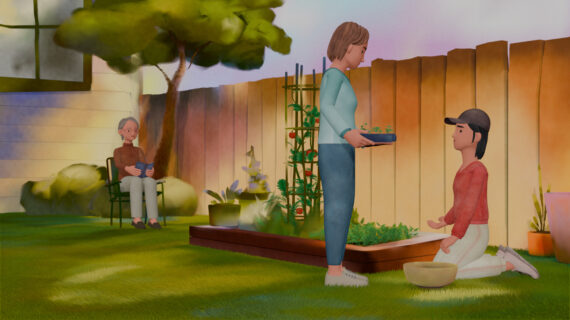
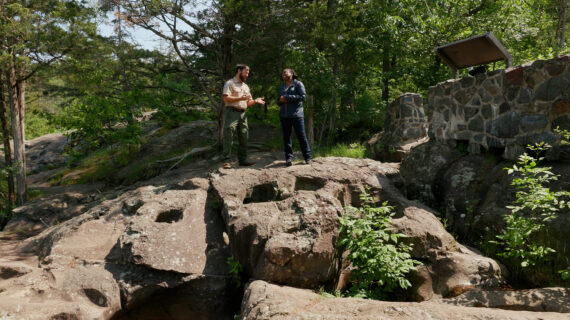
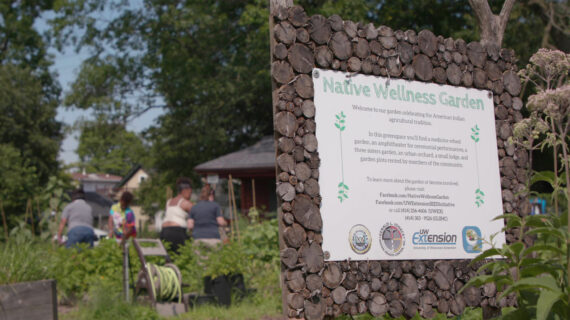


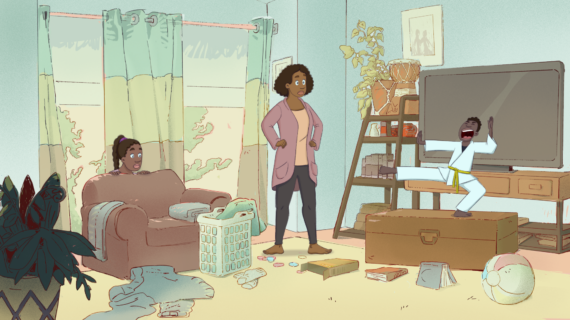
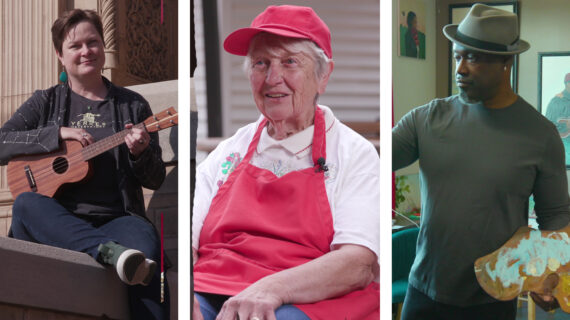
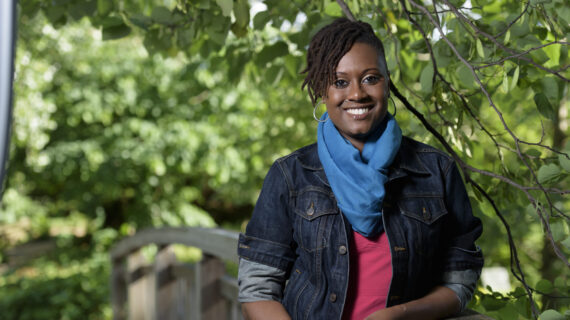
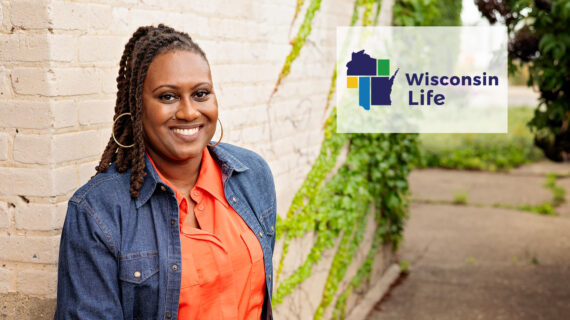


Follow Us